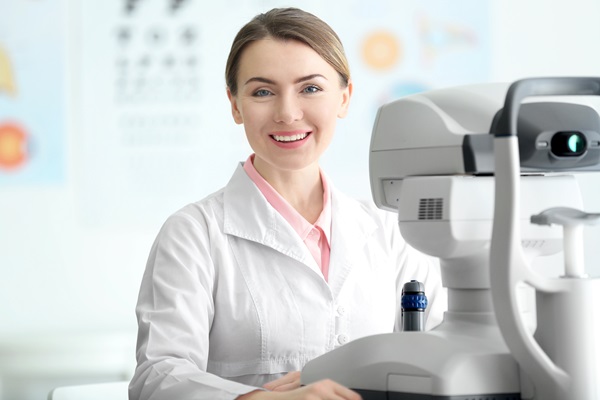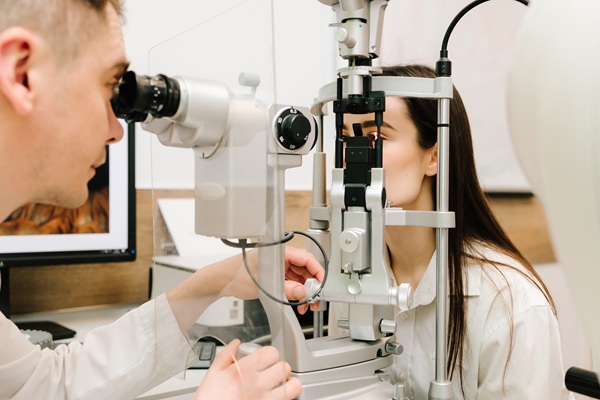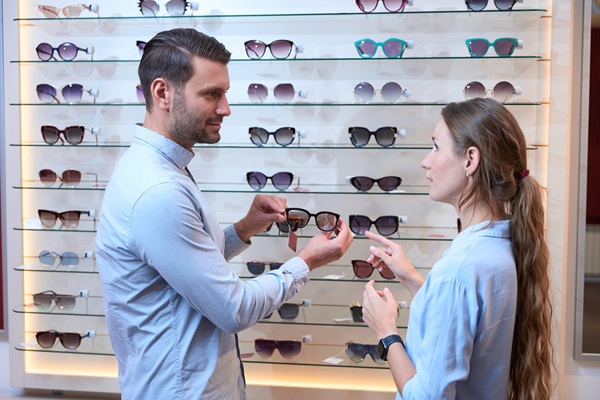3 Reasons To Visit an Eye Doctor

Taking care of the eyes can protect one's vision and general health. It is important to regularly see an eye doctor to ensure the overall health of the eye and body, regardless of whether you need glasses. This blog will discuss when and how often to see an eye doctor, formally known as an optometrist.
When to see an eye doctor
Annual eye exams are beneficial for people who wear prescription glasses or contacts. The American Academy of Ophthalmology's recommendations for patients without vision problems varies by age:
- Age 40 and younger: Every five to 10 years
- Between ages 40 and 54: Every two to four years
- Between ages 55 and 64: Every one to three years
- Age 65 and up: Every one to two years
Eye exams are the backbone of vision care. Below are three reasons a patient should not skip their routine eye exam.
Detect eye disease early
An eye exam is not merely a simple vision test; checking the eye’s overall health is an important component of any eye exam. The eye doctor will use several fast and noninvasive tests to assess the health of various parts of the eye. While this part of the exam is quick, it checks for a wide range of eye diseases, such as:
- Glaucoma
- Cataracts
- Keratoconus
- Macular degeneration
- Ocular hypertension
Vision correction
Also known as a refraction test, vision correction is what most people think of when they schedule an eye exam. The eye doctor will have the patient sit in a chair and look through a machine with various lenses to read a display of letters of various sizes (the Snellen eye chart). They will switch between lenses of different strengths to determine the patient’s prescription.
The eye doctor will perform this test on patients who already wear glasses and those who do not. Sometimes, a patient who has never needed glasses or contacts before may be advised they need corrective lenses while undergoing this part of the exam. While this may be unwelcome news, getting a prescription early on is best to avoid further straining the eyes and damaging them. Often, patients find that they can see more comfortably with prescription glasses; in fact, it can even reduce headaches and migraines caused by poor vision.
Update your prescription
If the patient already wears glasses, it is even more important not to forgo an eye exam. There may be slight vision changes that render one’s current prescription obsolete. Wearing an old or wrong prescription can cause headaches, nausea, fatigue, eye strain, and, of course, difficulty seeing. An eye doctor can update the patient’s prescription to avoid these problems.
Other reasons to visit an eye doctor
Do not wait to see an eye doctor if the patient starts to see flashes or floaters in their field of vision or experiences eye pain, severe vision changes, or vision loss. These issues could indicate a larger problem; for instance, floaters are a common symptom of retinal tears and detachment.
Schedule an appointment
Whether you wear glasses or not, it is important to see an eye doctor for an eye exam as recommended. Not only can an optometrist update one’s prescription, but they can also detect eye diseases and other issues. Contact our New Rochelle office to schedule your next eye exam.
Request an appointment here: https://brighteyesny.com or call Bright Eyes Optometry at (914) 730-9574 for an appointment in our New Rochelle office.
Check out what others are saying about our services on Yelp: Eye Doctor in New Rochelle, NY.
Recent Posts
Ophthalmologist and optometrists are two of the main eye care professionals. Both play an important part in helping you maintain the health and function of your eyes. However, while each type of eye doctor provides vision care, knowing the care you need can be confusing. Choosing the appropriate eye care provider depends on individual needs,…
Sunglasses have become a part of many people's wardrobes; however, they are also a great tool for protecting the eyes. Along with playing a large role in our daily lives, eyes are also sensitive to many things—sunlight being one of them. It is easy for one's eyes to sustain damage from direct sunlight exposure. Thankfully,…
A comprehensive eye exam does more than assess vision; it can also reveal early signs of various health conditions. Many systemic diseases affect the eyes before other symptoms appear, making regular exams essential to overall health care. Optometrists use advanced diagnostic techniques to detect conditions beyond vision problems, allowing for early intervention and treatment.Routine eye…
Cataracts are a common vision impairment that primarily affects older individuals, leading to clouded visions and, in some cases, blindness. Fortunately, cataract treatment provides effective solutions to restore sight and improve people's overall quality of life. Optometrists can use these advanced methods to improve precision, reduce recovery time, and lead to better treatment outcomes.Cataracts develop…


